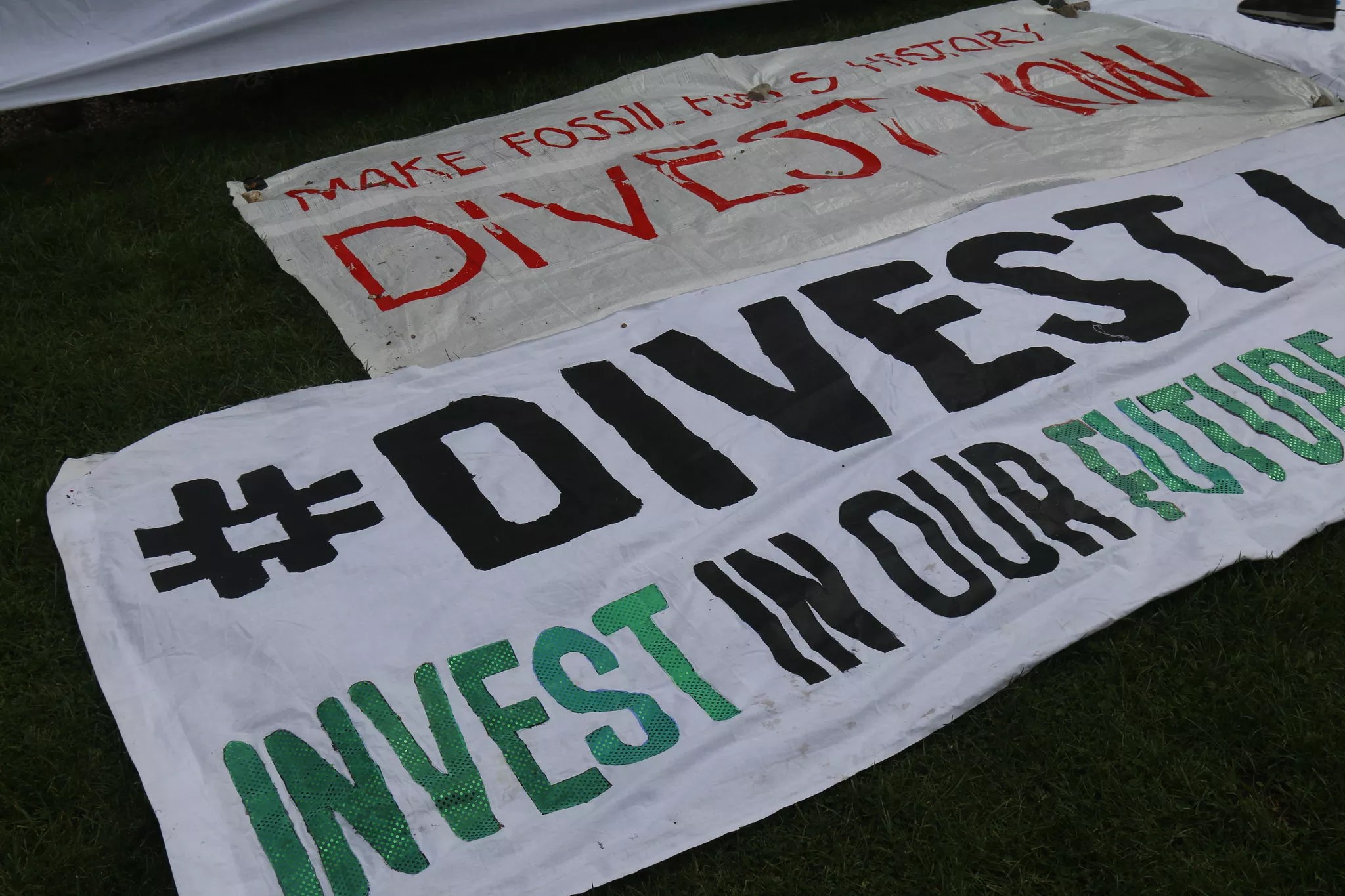
Fossil Free GM / Flickr

Audio By Carbonatix
A month after Mayor Michael Hancock announced that the City and County of Denver planned to dump its investments in fossil fuel companies, the divestment process is finished.
In a press release issued Tuesday, April 23, climate activist group 350 Colorado, whose members have long lobbied Hancock and other officials to divest from fossil fuels, hailed the city’s decision. A spokesperson for Denver’s Department of Finance confirmed that the city’s fossil fuel investments have been sold. As of earlier this year, its various portfolios had included about $50 million in corporate bonds issued by fossil fuel giants Exxon Mobil and Chevron, though in previous years that figure had been higher.
“This is a powerful statement to our children, grandchildren and future generations that we care about them and want to invest in their future,” said 350 Colorado boardmember Barbara Donachy.
Speaking at a mayoral forum at the Alliance Center last month, Hancock said his administration had begun the process of selling off those assets, and pledged that future investments made by the city would better “align with our values around sustainability and equity.”
As of this month, the Department of Finance, which oversees Denver’s $5.3 billion Consolidated Portfolio and other specially designated funds, has completed the liquidation of the city’s investments in Exxon and Chevron, according to activists and city officials. As those investments made up only a small fraction of Denver’s holdings, the divestment process was able to be completed quickly.
“We never held stock in coal, oil or gas companies, and [Hancock] has no control over the employee pension fund, so he did what he could with the assets he controlled,” said Jerry Tinianow, the city’s chief sustainability officer, in the 350 Colorado statement. “We are proud of Denver’s action on divestment. Local 350 Colorado representatives played a major role in helping us decide what the right thing to do was.”
The “Fossil Free” investing movement has gained momentum in recent years, securing more than 1,000 divestment commitments from public and private institutions around the world, representing nearly $9 trillion in assets. In the U.S., after years of frustration and disappointment, divestment activists celebrated one of their biggest victories to date last year, when New York City announced that it plans to begin divesting its $200 billion pension system from fossil fuels within the next five years.
In part, divestment activists argue that it’s unethical for governments and institutional investors to continue to fund the development of fossil fuel resources that account for more than 90 percent of the world’s greenhouse gas emissions. But they also point to evidence that investing in fossil fuels is ill-advised in a purely financial sense; as climate change worsens and the world continues to transition away from oil, gas and coal and toward renewable energy sources, the value of fossil fuel assets could decline rapidly, potentially leaving investors on the hook for trillions in losses.
Activists also say that Denver should go a step beyond Tuesday’s announcement. Aside from direct investments in fossil fuel companies, they want the city to dump its holdings in JPMorgan Chase and Wells Fargo, two of the biggest lenders to controversial projects like the Keystone XL and Dakota Access Pipelines. Earlier this month, as part of a series of “Defund Disaster” protests held across the country, activists with 350 Colorado temporarily shut down Chase Bank branches in Boulder and Colorado Springs.
“We at 350 Denver want to encourage even bolder steps that would include divesting our holding in the banks, currently JPMorgan Chase and Wells Fargo, that are key funders of fossil fuel infrastructure projects that are fueling the climate crisis and infringing on indigenous rights,” said Donachy.
Update, April 24: This post has been updated with confirmation of divestment from the Department of Finance.